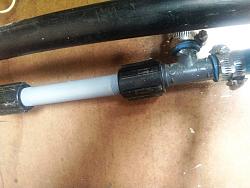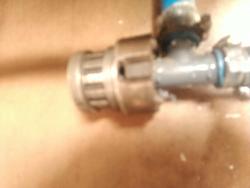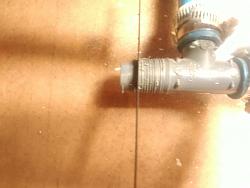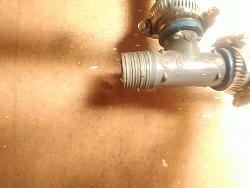Some of the plumbing in my pump house has 1: pex tubing stretched over poly tees made for thinner poly pipe I was needing to install a frost free hose bib to the outside f the pump house so the pex pipe either had to be shortened or replaced.
the gray threaded Schedule 80 PVC pipes can survive frozen conditions without bursting but how to transition from one type of fitting to another without having to add a barbed nipple to the end of the Pex tube on the Tee
My solution was to use a pipe threading die. But the problem there is most pipe dies have a guide the pipe passes through toe keep the threading operation square to the pipe.
I grabbed my Rigid 3/4" die and thought about removing the independent cutters and turning them over but then I remembered my antique REED pipe die set the dies are mono block just like bold dies It was a simple manor to remove the holding screws and flip the die in the housing then thread the Tee
Then just saw off the start taper of the barbed nipple




 LinkBack URL
LinkBack URL About LinkBacks
About LinkBacks






 Reply With Quote
Reply With Quote



Bookmarks